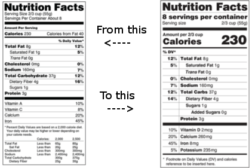Home » American Heart Association
Articles Tagged with ''American Heart Association''
Want to cut back on salt? Use herbs and spices instead
But being trained how to do it is even better
March 21, 2014
Updates proposed for nutrition labels on food packages
"Added sugar" added, salt daily value lowered
March 5, 2014
High blood pressure on the rise among U.S. kids
Obesity, excess salt being blamed
July 16, 2013
AHA: Kids should be taught CPR
Bill would fund training for “next generation of lifesavers”
June 13, 2013
Costs of treating strokes in U.S. expected to soar
A “looming crisis” in healthcare
May 31, 2013
Pets may help reduce your risk of heart disease
-But don’t head to animal shelter for that reason alone
May 15, 2013
Never miss the latest news and trends driving the safety industry
eNewsletter | Website | eMagazine
JOIN TODAYCopyright ©2024. All Rights Reserved BNP Media.
Design, CMS, Hosting & Web Development :: ePublishing






